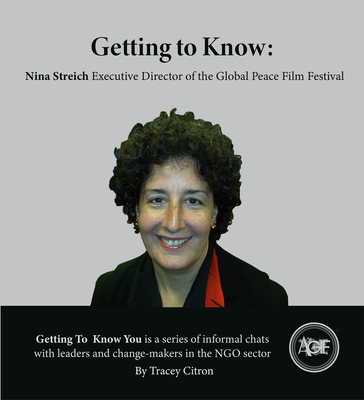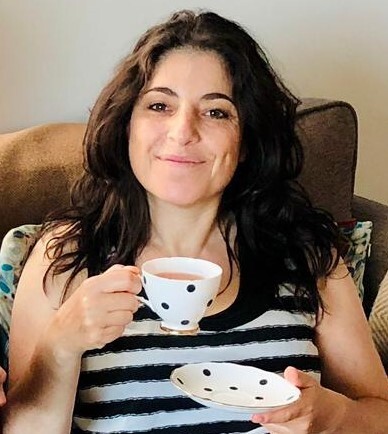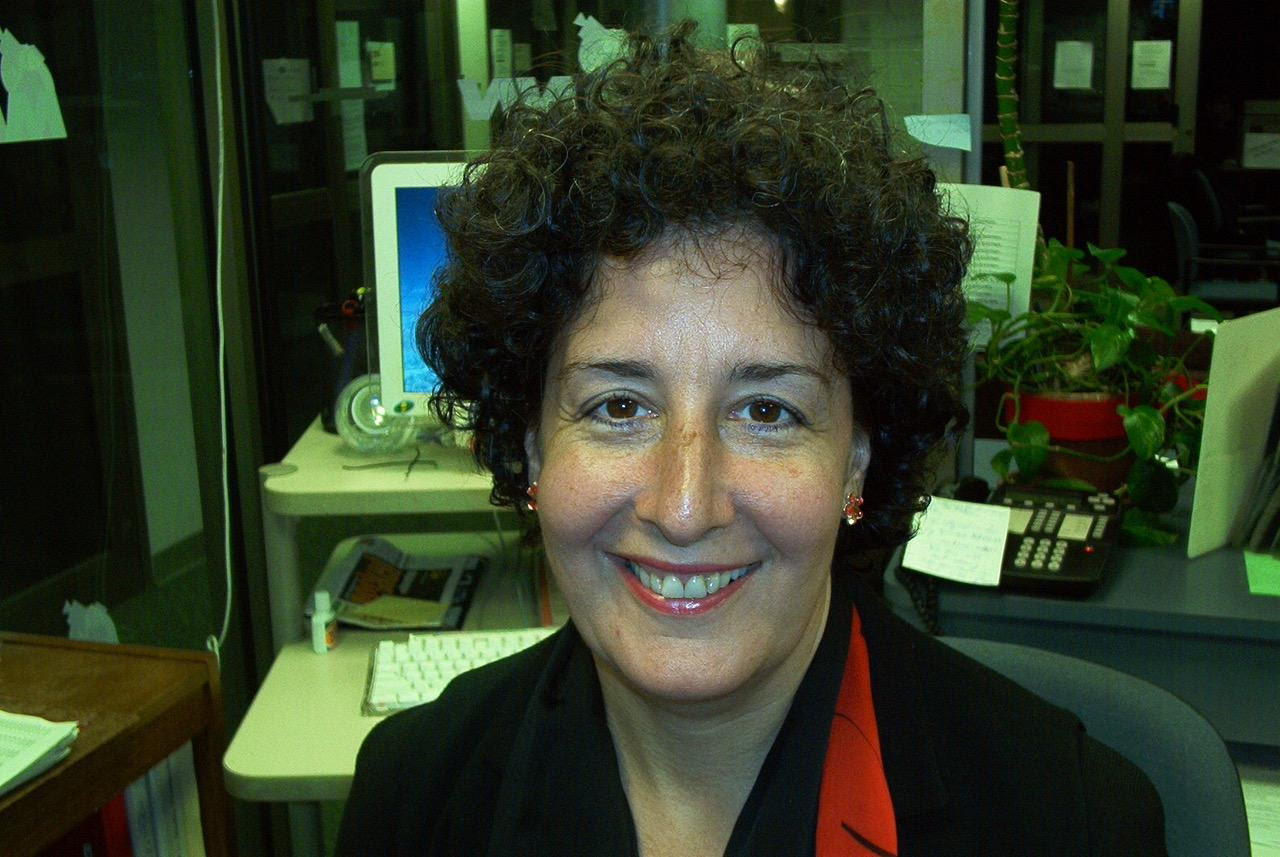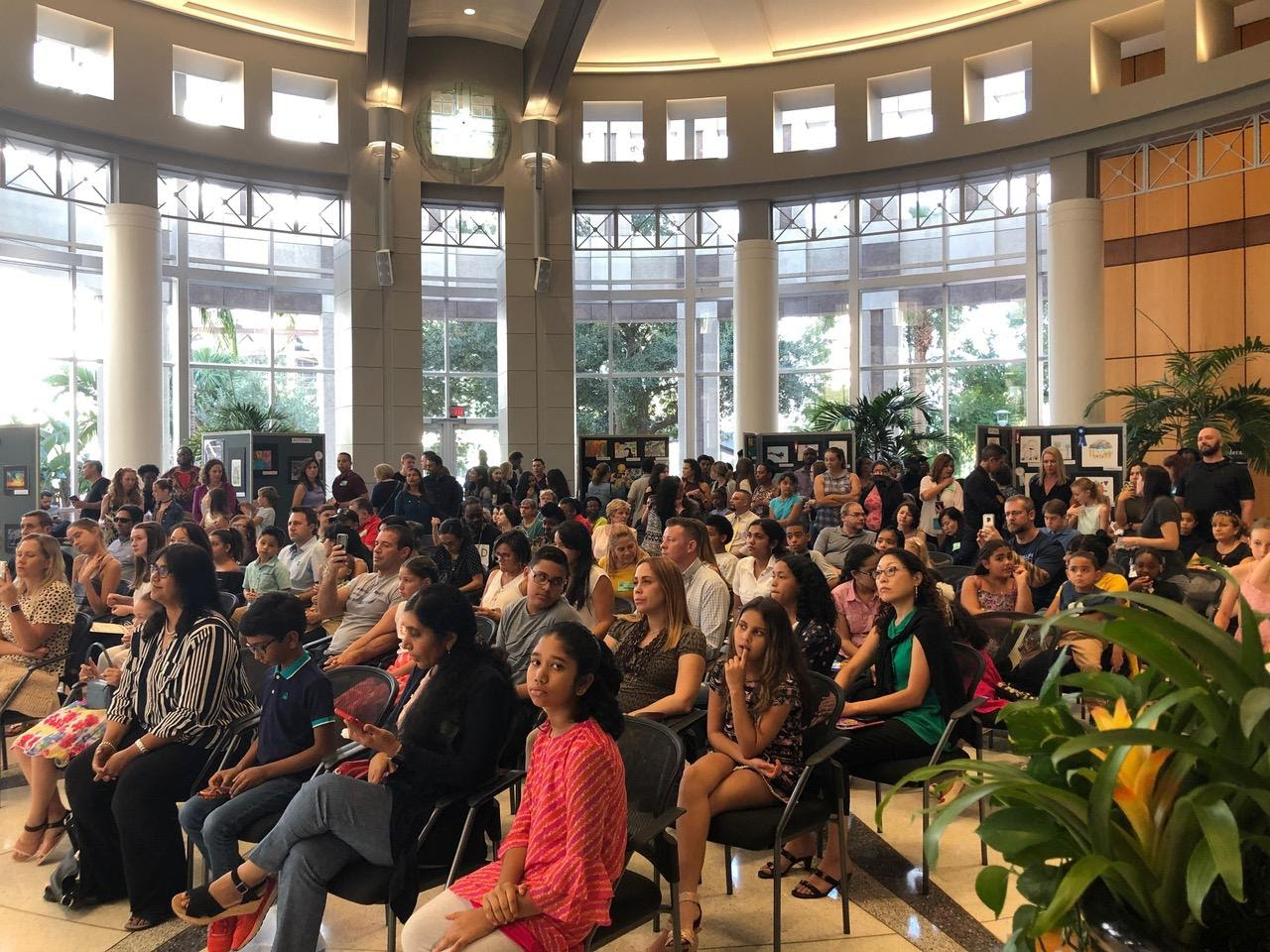
GETTING TO KNOW:
NINA STREICH, EXECUTIVE DIRECTOR OF THE GLOBAL PEACE FILM FESTIVAL
Written by: Tracey Citron
“Delighted to be speaking with you about the Global Film Festival,” I announced to Nina Streich last Wednesday morning as we started our Whatsapp interview.
“The Global PEACE Film Festival,” she responded unperturbed. “Many people get it wrong. When we started, I was often told to just leave “peace” out of it. Peace was considered an unpopular word, but that’s the reason to keep “peace” in, peace is important to everybody, whether it’s about inner peace, peace for you and your family or world peace. It starts within us; we have to find our way to peace.”
My blunder had gotten us off to a great start. It gave Nina the perfect opportunity to explain what underpins the Global Peace Film Festival (GPFF), while her kind and gracious attitude immediately put me at ease.
“There’s always going to be tensions in life. What is important is having a dialogue between people who don’t agree. ‘True peace is not merely the absence of tension: it is the presence of justice,’ as Martin Luther King said. So, my idea when I started the festival, was to have people from opposing viewpoints come together and discuss their differences.”
Now in its 19th year, the GPFF is as much a community organization as it is a film festival. By catalyzing the power and potential of film, Nina and Kelly DeVine, the festival’s artistic director, get people involved by using the festival screenings as launching pads for further events and ongoing campaigns which aim to nurture open dialogue and inspire a realistic notion of peace as opposed to the unpopular, airy-fairy one. “Our success is measured on what happens after watching the film. Our tagline is, “it starts here” because the effectiveness of the festival is when the lights go up after a film, not down before it.” They achieve this by bringing together filmmakers with educators, local civic groups and businesses. “Sometimes, the filmmakers are surprised,” she says, “while some already have an impact campaign and some are even quite participatory.”
Nina Streich, Executive Director of the Global Peace Film Festival
The GPFF began in 2003 in response to the Iraq war. A New York philanthropist who wanted to do something for peace and who had business interests in Orlando hired Nina to organize it. Based in New York where she still lives, the idea of creating a festival in Florida didn’t faze her at all. She’d spent fourteen years growing up in the UK, had studied at Sussex University and was used to meeting different types of people. What she wasn’t prepared for, however, was the overwhelming lack of open discussion she found in Central Florida.
In fact, during the first festival she was accosted twice by two different guys asking her why she hated George Bush. “The first time that happened I was shaken. I had this guy right in my face and I didn’t know what to say. Afterwards, I thought, what should I have said, and then shockingly it happened again, I said, ‘What do you mean?’ He sputtered, ‘Peace!’ And I asked, ‘What’s wrong with peace?’ He could not answer.”
In contrast to the men, a group of women were desperate to keep the discussion going after the screenings and Q&As. The festival had given them an opportunity to open up about their thoughts and opinions about political issues, something rarely or never aired publicly before.
Nina puts this down to politics, “Central Florida has changed,” she says, “it was very purple when the festival started, it’s definitely blue now and so many more people do talk to each other about issues.” She mentions “red” and “blue” several times throughout our chat, something I wasn’t expecting, but given her background it makes sense as she’s a lifelong peace and human rights activist with a background in film and politics. Amongst many achievements, she served as Deputy Commissioner of the NYC Mayor’s Office of Film, Theatre & Broadcasting for three years and managed the Newport International Film Festival between 1998 and 2010.
We chatted for over an hour and could have gone on longer. Her dedication, openness and light-heartedness had me all ears as I tapped away at the keyboard. We covered a lot of ground, from personal experiences to programming, the GPFF as a community organization, the pros and cons of running the festival during a pandemic and she gives some great tips on funding too.
My first question was on programming. Out of the 100s of submissions she receives yearly, what type of film would make it into the GPFF?
The GPFF City Hall audience
“Part of the mission of the festival is to inspire and educate the people who are watching the films. We’re looking for films that will make people sit taller in their seats. We always look for films that show what people can do, programs people can replicate. Last year we had a film from Africa called Our Gorongosa about a phenomenal education program, so people watching the film could say ‘hey, we could do something like this here’.”
The GPFF programming also aims to bring international issues to the local community in ways which allow people to discuss them openly and to get people thinking outside the all too pervading, ‘cookie cutter’ box. Prison Through Tomorrow’s Eyes is one such case in point. The film documents how a criminal justice professor takes his graduate students on a tour of a California penal system, from maximum to minimum security. Before and after the tour, he asks his students the same questions such as ‘what do you want to do when you graduate?’ The second time he asks, their ideas about their future have changed. They started out very black and white, but the prison system was not what they expected: they realized there are a lot of shades of grey.
“We showed this film in a middle-class, predominantly white area. We programmed it because at the time Amnesty International was running an anti-death penalty campaign. For the Q&A we had this speaker who had been on death row. The audience peppered him with questions; it was a huge success. The effect really pleased both the filmmaker and the Amnesty International reps.”
“Another great film about the death penalty was also doing the rounds at the time,” she continues, “but it wouldn’t have had the same reaction with our audience. The New York and LA intellectually elite loved it, but it would have made our audience feel talked down to. It’s a matter of understanding who your audience is – speaking with people rather than at people. That was sort of how we developed a lot of the programming – by knowing our audience”. An excellent reminder for both programmers and filmmakers.
Like many film festivals, the GPFF adapted quickly to the situation last year by going virtual. Before the pandemic, it was an in-person event. However, since 2012 there has been an online selection of short films to accompany the main event. This year, it will be a hybrid of in-person and virtual screenings; the first week will be in-person, the second week will be virtual. So, what are the pros and cons of running the festival during a pandemic?
“The biggest pro,” said Nina, “is sharing the community spirit of Central Florida with a global audience. The biggest con is not being able to interact with a live audience.”
“When everything shut down last March, I had to cancel three screenings. I was scheduled to go down to Florida and had to cancel that…. Kelly and I were like, we gotta do something, everybody’s home. In April, many filmmakers (including GPFF alumni) and distributors were unlocking password protection from their films so we decided to tell our followers to watch the films and then join us for a question and answer session with the filmmakers. We did this on Zoom and Facebook Live. Doing this we found something right away: people came to the Q&As first, before having seen the films. So we ‘flipped the script’ and rather than traditional Q&As, we started the interviews by asking the filmmaker to describe their work. This way, the conversation became evergreen and allowed viewers to find out about a film and, hopefully, decide to watch it. The filmmakers really appreciated it and used the opportunity to promote their work the way they wanted to, rather than responding to the questions from others.” Life gave them lemons so they made lemonade and they have continued to record and present new conversations monthly. They will also be using the same strategy in this year’s festival.
What about funding? “The bulk of the festival’s funding comes from grants,” with box office ticket sales constituting about 10 - 15 %, which isn’t a lot. Keep in mind that you have to rent a theatre, which can be very expensive.”
Sponsorship from local businesses also plays a part. Even when cash is tight, like the past year during the pandemic, she maintained business sponsorships by asking for help with marketing (postings on Facebook for example), rather than asking for money. Other funding comes from crowdfunding campaigns such as Empower the Arts, which will kick off from July, through which all donations are eligible for a 15% match by United Arts of Central Florida, an organization that supports local arts groups.
But she admits that raising funds is hard. “Advice I would give is: Firstly, be grateful for every donation and thank everyone, starting with people you know. Secondly, remember that you never know where a small donation can lead. And thirdly, there’s no such thing as a no. Somebody can say no, but you can go back and ask again. The only absolute no is “take me off your list”, or “do not contact me again or I’ll sue you”. Sometimes you don’t even get a no, you just get no response at all. I can send 100 letters and get three responses. I don’t take it personally. Also, passion sells. And honesty.”
Lastly, I asked Nina what is the hardest thing about running a film festival. “The hardest thing about running a film festival is getting the word out.” Hum, I may know someone who can help her out with that.
In house screenings run from Sept 20 through 26. Many will then be available online from Sept 27 through October 3. For more information, please visit peacefilmfest.org.
 About the Author: Born and bred in Dublin Ireland, Tracey spent over two decades working in art galleries and institutions in London and New York and collaborated regularly with art detective Charles Hill on recovering stolen masterpieces from public and private art collections. In 2020 she decided to take off her art world cap, packed her bags and moved to Milan, Italy, where she works as an English teacher, translator and writer.
About the Author: Born and bred in Dublin Ireland, Tracey spent over two decades working in art galleries and institutions in London and New York and collaborated regularly with art detective Charles Hill on recovering stolen masterpieces from public and private art collections. In 2020 she decided to take off her art world cap, packed her bags and moved to Milan, Italy, where she works as an English teacher, translator and writer.

